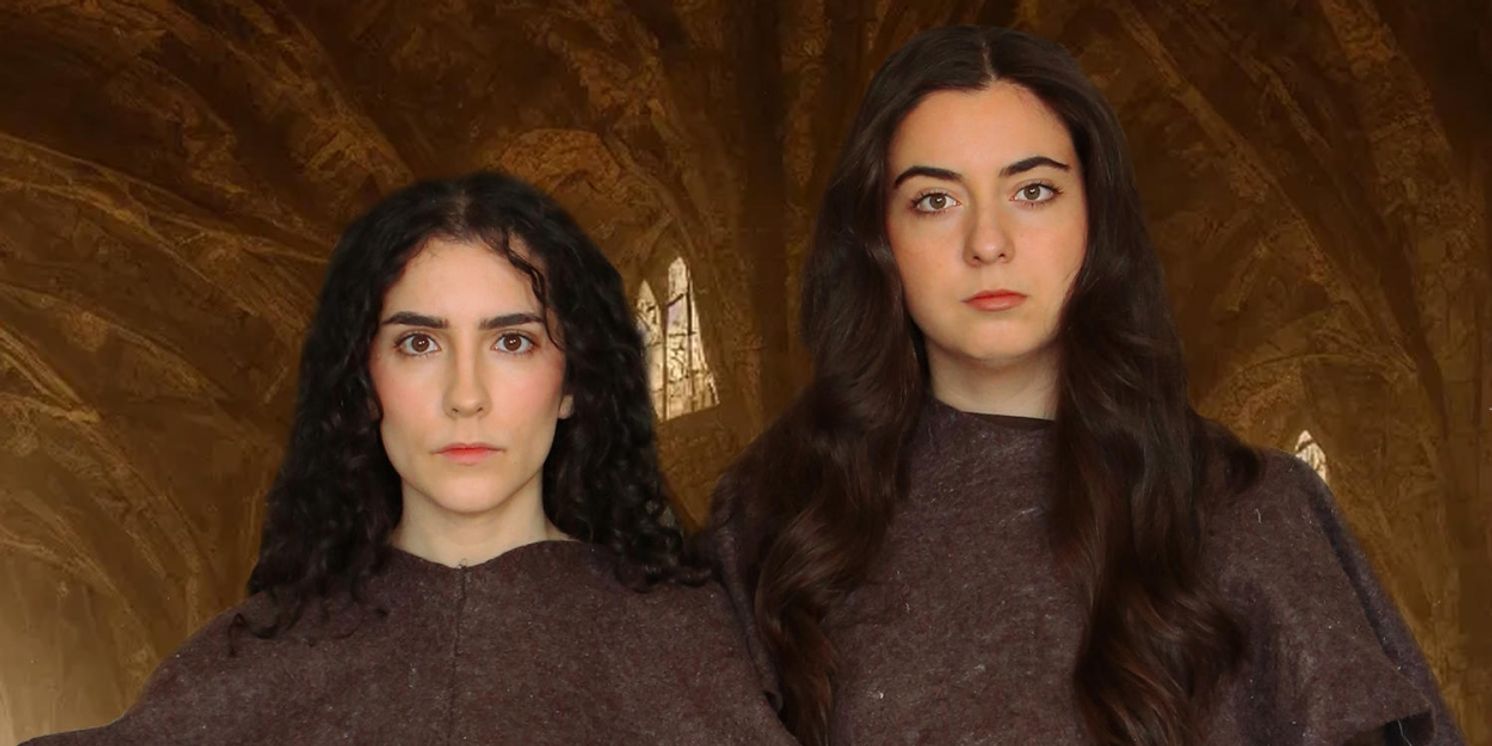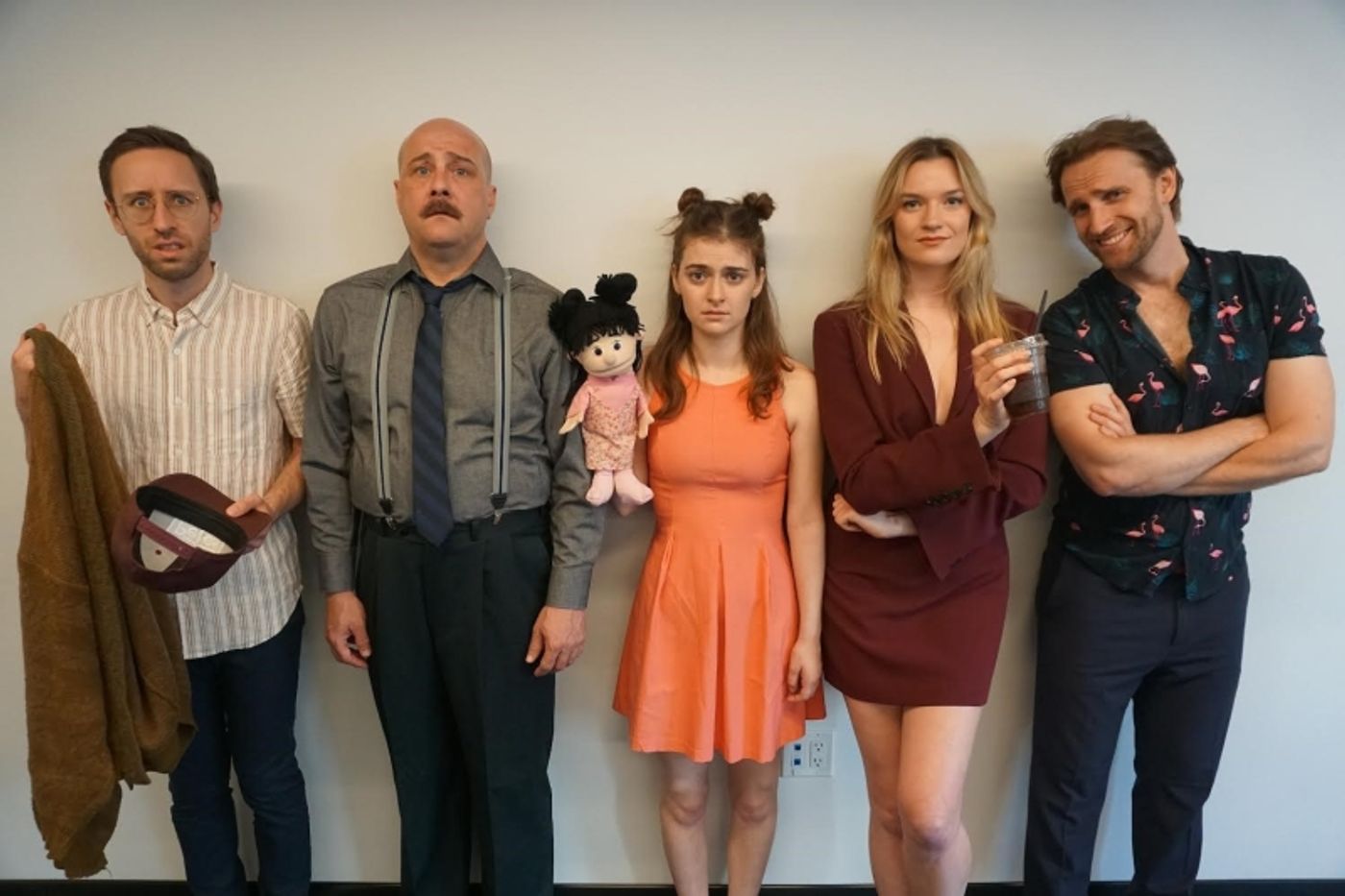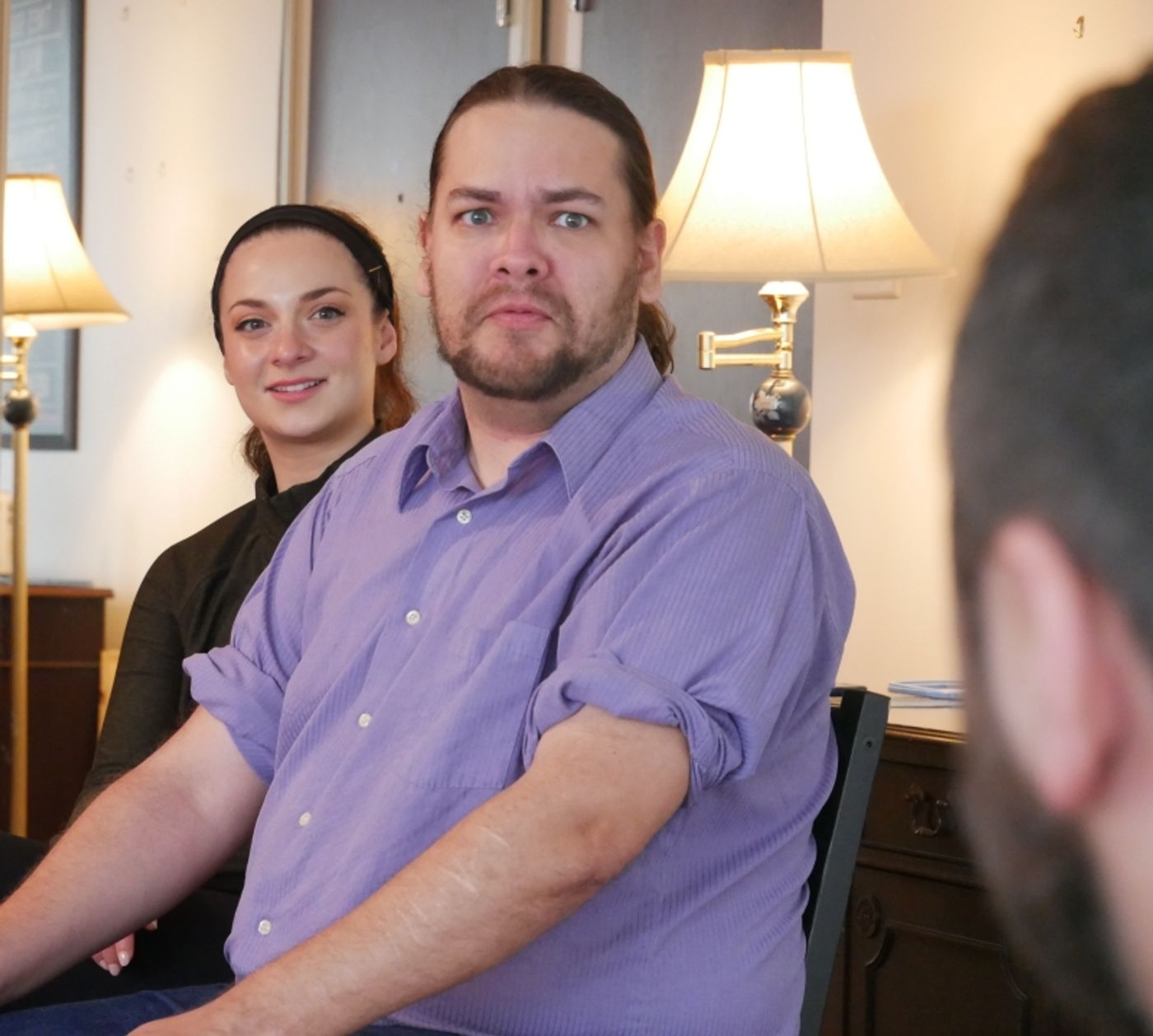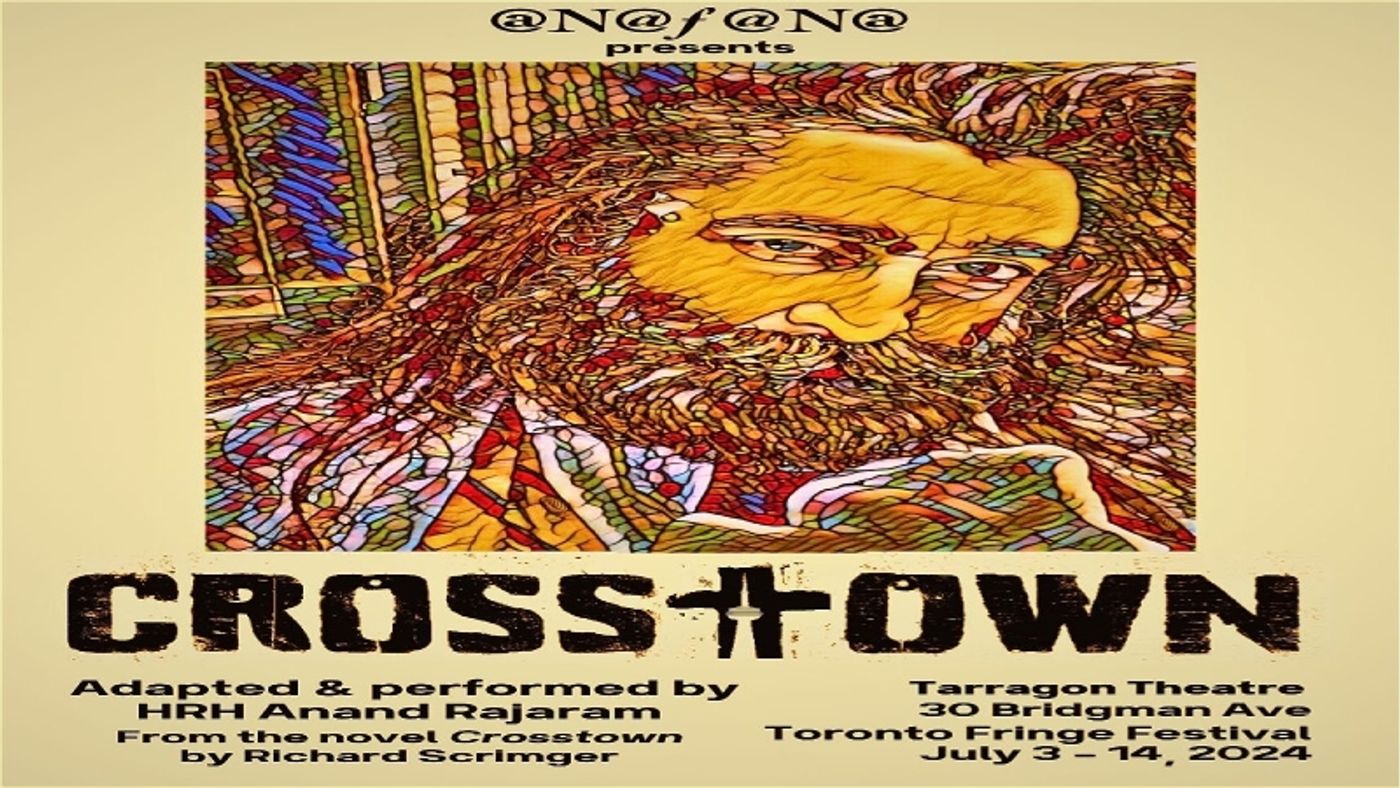Review: TORONTO FRINGE FESTIVAL: DAY 6
Reviews of Monks, Stiff and Sons, Tape, Moe: A Rap Opera, and Crosstown


MONKS
Welcome, Brother Reader! It’s so wonderful to see you at this review of MONKS, Annie Luján and Veronica Hortigüela’s hour of ridiculous, inspired lunacy. We’ll try to finish it before the abbot gets back.
Luján and Hortigüela, wearing comical tonsured bald caps over untucked hair, play two monks who have invited their fellow brothers for an afternoon of blissfully doing nothing before their leader returns and insists that work resume. The show is heavily, gleefully based in audience participation, as the monks distribute lentils for counting, assign appellations, and try to find their missing donkey (the double entendres are plentiful—don’t bring the kids).
While MONKS is held together by the thinnest of threads, there’s no resisting Luján and Hortigüela’s delightful commitment to even the stupidest of bits, and only the most curmudgeonly abbot could resist cracking a grin as they turn the Tarragon Solo Room into an absolutely unholy mess (praise be to those who have to deal with the cleanup before the next show comes in). An attempt to make the concept of doing nothing meaningful at the end is thoughtful and well-intentioned, but feels somewhat unnecessary and out of place. The show doesn’t have to try to be more than it is, which is wildly entertaining and utterly unique.
Photo of Annie Luján and Veronica Hortigüela by Audrianna Martin Del Campo
STIFF AND SONS

A dark comedy about a family-owned funeral home where some family members decide to start drumming up business through murder, Aidan Gouveia’s STIFF AND SONS is a well-paced and inventive production that brings its quirky script alive. The Stiffs are hurting for business; while a new, sexy commercial may do some of the trick, it’s not working fast enough for the head of the business’ scheming wife (Manon Ens-Lapointe) and her paramour, her husband’s brother (Jack Rennie). David Stiff (Tim Walker) still cares about the dignity of his work; eager to follow in her father’s footsteps, his daughter Erin (Izzi Nagel) and her “evil twin” Karen, the puppet she totes which seems to possess her, accidentally embalms the family housekeeper (Jonas Trottier). Things spiral from there, with plenty of blackmail, knockouts, hijinks, and people getting locked in coffins as the evil family members put their scheme in motion.
The broad, wacky humour may not be to everyone’s taste (to be honest, it wasn’t really to mine), but there’s no denying the fluidity of Daniel Reales staging and performances, which are anything but stiff. Even if your funny bone isn’t especially tickled, there’s much to appreciate. Fight director Jack Rennie effectively creates cartoonish fight sequences, and the labelled cardboard props also contribute to the comic atmosphere.
Standout performances include Nagel’s deadpan Erin and demonic Karen, and Trottier’s rapid-fire changes between portraying a host of townspeople and the news reporter trying to cover the improbable story. And you have to appreciate the forthrightness of a script that simply announces it’s not going to deal with explaining the logistics of an important plot point and we can just accept that it happened.
Photo of Jonas Trottier, Tim Walker, Izzi Nagel, Manon Ens-Lapointe, and Jack Rennie provided by the company
TAPE

TAPE, Stephen Belber’s 1999 drama about sexual assault, feels both currently relevant and like an artifact of the time it was written. High school friends Vince (Thomas Sarrigiannidis) and Jon (Joel J. Pettigrew) reunite for the film festival opening of the latter’s first movie. Jon initiallyseems like a sensitive soul who’s going places, his friend the regressive loser caveman with “violent tendencies.” But when they delve into a past incident with a high school ex-girlfriend (Jada Rifkin) that’s been festering in Vince’s mind for ten years, the tables turn—and then turn again.
Belber’s script has a few twists and turns and an interesting premise, though it feels like it has at least one twist too few; I found myself surprised that the play was actually over when it ended. The cast does nice work with the rapid-fire exchanges, Pettigrew’s chameleonic sensitive jock consistently raising questions about how much of our sympathy he really deserves. It’s a solid production.
However, though I’m loath to remember that 1999 was a quarter-century ago, the way we talk about the topic has evolved. As such, a clearer sense of setting here would help situate us better within the story the play is trying to tell. For example, now that everyone has a cell phone that can easily record conversations (and each character carries a current phone here)—and with deepfake technology’s existence, the use of a tape recorder seems odd. With that modernized touch, it also feels odd that the threat of social media cancellation never crosses the characters’ minds—but, of course, in 1999, there’s no social media to speak of. We just have to know that’s when we are.
There’s so much potential in an exploration of memory, fault, and power dynamics when it comes to sexual assault that it’s a shame Belber spends so much time having characters threaten to leave and convincing them to come back instead of exploring the topics to their fullest.
Photo of Jada Rifkin, Joel J. Pettigrew, and Thomas Sarrigiannidis by Lucas James
MOE: A RAP OPERA

Sometimes I feel like I’m one hundred and one
When I find kids these days were raised on Hamilton
Lin-Manuel is their Sondheim—now let’s dramaturg
This Teen Fringe show about baseball player Moe Berg.
A polymath, Berg went to Princeton and learned
But instead of law school, for the ballpark he yearned
As a player, he’s sort of an average guy
But his intellect put him to work as a spy
In the Second World War, he provided a twist
Interviewing German nuclear physicists
‘Bout the state of the program, in hopes they’d defect
Caught one just like a ball in his special project.
Cyrus Sarfaty’s lyrics show passionate pride
I just wish that the cast had been more amplified
For, because of the back track, the rapid-fire words
Have a tendency to be too quiet and blurred.
It’s a shame, because so many lyrics are good
Only Sarfaty can be wholly understood
Rhymes in French, English, Yiddish? Impressive! I mean—
It’s hard to believe this kid’s just seventeen
Next steps: work on the pacing and fix the transitions
Which need underscoring while switching positions
Change staging that’s static; it works once or twice
Like when Berg’s on a quiz show; that scene’s pretty nice.
And while we’re on the subject, the rap track-filled score
Needs some breathing room with different beats to the fore.
The genius of Hamilton lies in the fact
That rap’s mixed with ballad—you switch up the act!
Though it travels the world, still, the wide-ranging show
Rests too much on showboat, braggadocio Moe
We could also use different emotional beats
As we blaze through a trail of Berg’s wins and defeats
To know more of the man who played ball through the stigma
The loudmouth who’s also the tight-lipped enigma
We know he’s a genius, we know that he’s slick
But what makes baller, scholar and spy really tick?
For example, we really can only assume
How this Jewish man felt as the Holocaust loomed
It’s a very rich topic the show could explore
Like the insular man who left all wanting more.
In the end, we know Moe is complex, but I needed
More clarity in terms of how he succeeded.
By his father and brother’s Greek chorus derided
Is he hero or failure? It hasn’t decided.
So there’s heaps of good promise, but much to be done
‘Fore this show comes to bat with a walk-off home run
It’s not quite ready yet, but remember their faces
Like Hamilton or Berg, the kid’s going places.
MOE: A RAP OPERA graphic provided by the company
CROSSTOWN

Two-time Dora Award-winning actor Anand Rajaram sits in front of a music stand, holding a kalimba. With a simple pluck of the instrument, he changes the scene, taking us on an 85-minute journey through the lives of a varied cast of Toronto characters, centred on the pivotal choices made by a young OB-GYN (note that a significant portion of the show deals with discussion of abortion). Based on Richard Scrimger’s novel of the same name, the show tells a spiraling, expansive story that rewards very careful attention.
The unadorned nature of the production, combined with storytelling that pinballs through time and place and is dialogue-only, makes for a potentially confusing experience. It’s lucky, then, that we’re in such good hands with Rajaram, who differentiates everyone well enough that one can tell them apart, and is compelling enough to make one want to listen carefully with the kind of rapt fascination that pays off later. I was so focused that I had to shake myself back into reality at the end.
To tell much more about the play’s plot would be detrimental to its impact, but it’s a meaningful story about the impacts of the choices we make and the tests of integrity we face. Go when you have the energy to keep track of the threads, and watch a talent at work.
CROSSTOWN graphic provided by the company
Reader Reviews
Videos

